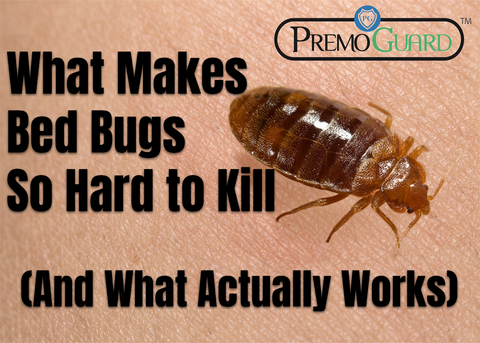Sticktight fleas may be small, but their effects on backyard flocks can be devastating. These parasites attach firmly to a chicken’s face, comb, wattles, and eyelids, where they feed on blood and cause painful irritation. Left untreated, they can weaken birds, reduce egg production, and even lead to blindness or death in extreme cases.
Fortunately, sticktight fleas can be managed effectively when caught early—and poultry keepers today have a range of safe solutions.
What Are Sticktight Fleas?
Sticktight fleas (Echidnophaga gallinacea) are a unique type of flea often found in warm climates, though they occasionally appear elsewhere. Unlike common fleas that hop from host to host, sticktight fleas embed their heads into bare skin and remain fixed for days to weeks (often 1–3 weeks).
-
Size: Adults are tiny—about 1–2 mm long (smaller than cat fleas)—appearing as black pepper-like specks.
-
Location: Around eyes, comb, wattles, and ear openings.
-
Lifecycle: Eggs fall into litter or soil. Larvae and pupae develop off the bird, and the full cycle takes about 1–2 months. Pupae can survive for extended periods depending on conditions.
-
Disease risk: Sticktight fleas are not known to transmit diseases commonly in poultry, but heavy infestations can cause anemia, secondary infections, and even eye damage that may lead to blindness.
Symptoms of Sticktight Fleas in Chickens
Watch for the following signs in your flock:
-
Dark, immovable specks on combs, wattles, or eyelids
-
Crusty skin or lesions where fleas are embedded
-
Swollen or irritated eyes that may impair vision
-
Pale combs and fatigue from blood loss (anemia)
-
Restlessness, scratching, or head shaking
Note: Dead fleas may remain attached after treatment—you may need to remove them gently.

1. Manual Removal
-
How it works: Use tweezers to carefully remove fleas from combs or wattles. Apply a small dab of antibiotic ointment afterward.
-
Eye caution: Avoid touching the eye surface. If eyelids are heavily infested, remove what you safely can and use ophthalmic-safe wound care. Seek veterinary help if the eyes are threatened.
-
Best for: Mild infestations.
-
Drawback: Time-consuming and stressful for birds.
2. Chemical Insecticides (Permethrin, Spinosad, Pyrethrin)
-
How it works: Products labeled for poultry (e.g., permethrin sprays, spinosad such as Elector® PSP) can provide fast knockdown.
-
Egg withdrawal: Many poultry-labeled permethrin and spinosad products have no egg withdrawal when used as directed.
-
Safety notes:
-
Cats are extremely sensitive to pyrethrins/pyrethroids—keep cats away from treated areas and never use cat/dog products on poultry.
-
Avoid spraying near birds’ eyes.
-
-
Label directions: Many permethrin products recommend a repeat in ~7–14 days. Spinosad sometimes controls mites with a single thorough on-bird treatment, though premises treatment is still essential.
3. Natural, Non-Toxic Alternatives Like Premo Guard Poultry Spray
-
How it works: A ready-to-use spray formulated with plant-derived oils, designed to help control fleas, lice, and mites without synthetic insecticides.
-
Strengths:
-
Plant-based, low-odor formula.
-
Can be applied to birds (avoiding eyes) and sprayed in coops/runs.
-
No regulated withdrawal period (since it is not a registered drug/insecticide), but always follow label directions.
-
-
Safety notes:
-
Avoid direct eye contact.
-
Some essential oils can irritate birds or be toxic to cats at high exposures—always use only as directed.
-
Why Premo Guard Poultry Spray Is the Safest Choice
Among all available treatments, Premo Guard Poultry Spray is the safest and most practical option for long-term flock health.
-
✅ All-natural formula: Made from essential oils—no toxic chemicals.
-
✅ Family- and pet-safe: No risk to children, cats, or dogs.
-
✅ No egg withdrawal: Continue collecting and eating eggs without worry.
-
✅ Dual action: Can be sprayed directly on birds and throughout the coop environment.
-
✅ Vet-trusted: Used nationwide by poultry keepers who prefer chemical-free care.
While chemical insecticides may act faster, their risks often outweigh their benefits. Premo Guard offers peace of mind, ensuring your flock is protected naturally and effectively.
-
Prevention & Long-Term Flock Care
Because larvae and pupae develop in the environment, ongoing husbandry practices are just as important as treatment.
-
Stay consistent: Follow product labels; repeat treatments as directed.
-
Clean the environment: Replace bedding, scrub roosts, and consider removing or burning heavily infested litter.
-
Break the cycle: Elevate cages or coops at least 3 feet when possible to reduce flea development in soil.
-
Dead fleas remain attached: Remove gently after treatment if needed.
-
Control reservoirs: Dogs, cats, and wild birds can carry fleas—limit cross-contact and prevent wild-bird access.
-
Rodent control: Mice and rats often harbor fleas—seal entry points and secure feed.
-
Final Takeaway
Sticktight fleas are stubborn parasites, but with the right approach they can be controlled. Manual removal works for light cases, chemical insecticides provide rapid relief, and Premo Guard Poultry Spray offers the safest, plant-based alternative for those who want a natural solution.
Combined with good coop hygiene and prevention strategies, your flock can stay flea-free—without compromising their safety, your eggs, or your peace of mind.


